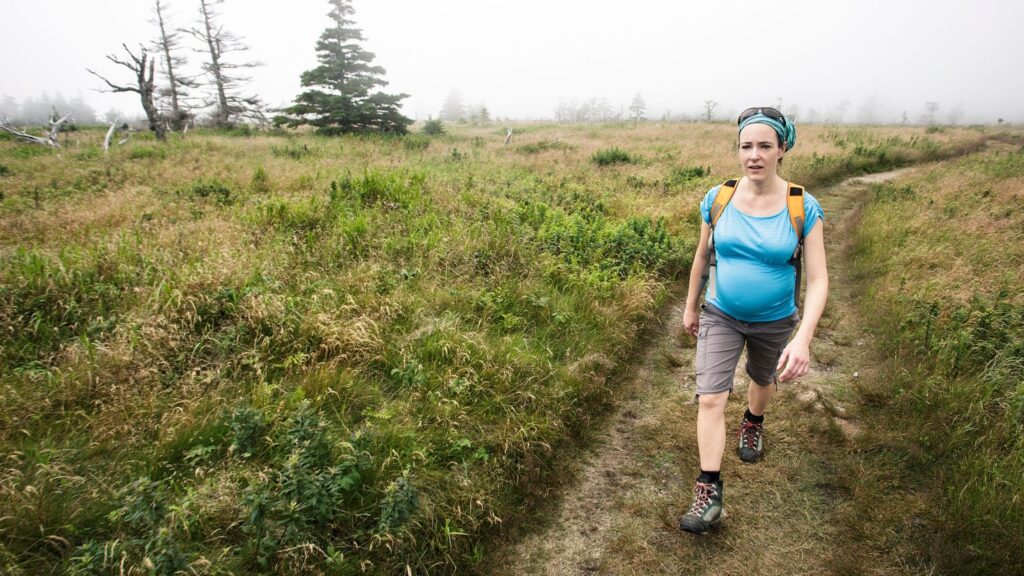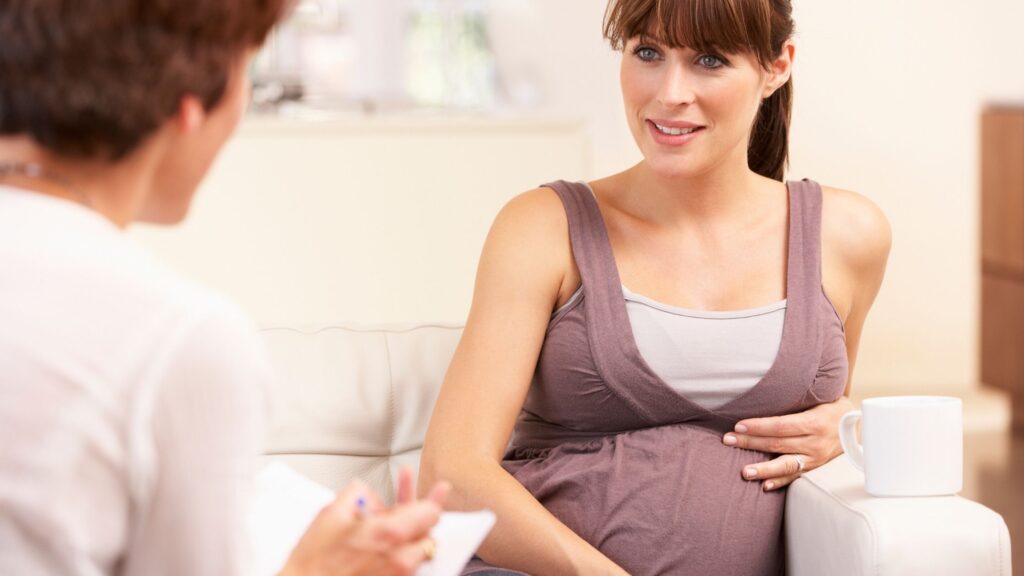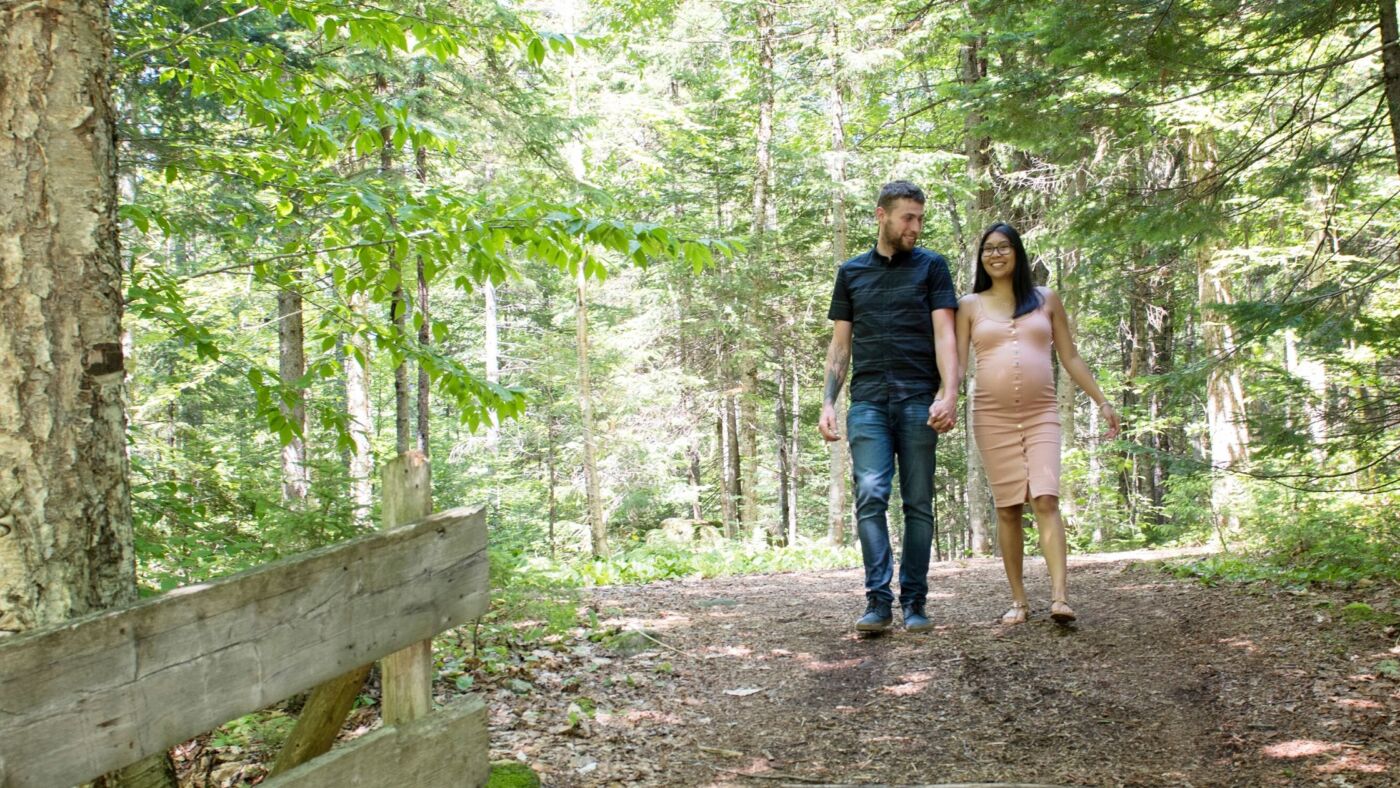It seems odd that for such an ‘every day’ biological process the pregnancy experience can be so very different for the women who go through it.
For many, it will be a breeze… their faces aglow with the rush of hormones and excitement for the arrival of the new baby. For others, it’s a trial… their faces grey with nausea, their hormones creating waves of worry and low mood.
I have to admit I spent the first half of my pregnancy in the second group, before a brief foray into euphoria, finally spending the last couple of weeks before my daughter’s arrival in a haze of anxiety.
It’s no wonder women often feel uncertain about what they can and should be doing to take care of themselves and their baby. Let’s face it, never in our lives are we so bombarded by people telling us what not to do, alongside a good dose of criticism for the things we do choose to do!
Whether you breeze through pregnancy, or not, every woman will experience times when they don’t feel so great – and let’s face it, it’s been particularly tough during the pandemic.
Many women will be experiencing anxiety and fear, as well as uncertainty about the future for themselves and their family.
It really has been trying times. If this is you… we hear ya!
So, what to do?
Well… there’s always wine! Only kidding! But, it can be a serious problem.
You know you’re becoming fearful, anxious and stressed, but one of the truly annoying traits of these feelings is that they are very difficult to manage and can become overwhelming.
But, there is a really great way to help reduce stress and anxiety, and you probably already know it… being active.
“BUT HOW?” I hear you cry! “We’re in lockdown”, “I feel too sick”, “I don’t know what’s safe for the baby!” Well, don’t worry I’ll answer all these questions and more, but first up let’s talk about why it works.
When we’re stressed we produce cortisol, a hormone which is actually super useful to the body. It helps sharpen our reactions so we can flee from danger – our heart rate increases and our body releases glucose into the bloodstream ready to be used as energy. Unfortunately, too much cortisol in the long term is bad for the body, leading to poor physical and mental health. Also, and I bet you didn’t know this, it can travel across to the baby through the placenta. (So sorry if I made you worry about that!)
The thing is we can reduce levels of cortisol by being active. But, what does being ‘active’ mean? Well, in the UK the Chief Medical Officers have produced something called the Guidelines for Activity for Pregnant and Postnatal Women. They state that women should aim for 150mins of moderate activity every week. Moderate activity is an activity where you can speak but can’t sing – so a brisk walk, cycling, jogging, swimming, that sort of thing. Every women’s moderate will be different depending on their ability and fitness.

Unfortunately, there are many misconceptions that being active during pregnancy can carry a risk to mothers and their babies. Also, many women often face criticism if they continue an active lifestyle, and many are told to ‘take it easy’. There is strong evidence that there is no risk of harm for healthy mothers and their babies if they take part in moderate activity. There are some conditions where you should seek additional support and guidance, so we recommend you pop along to the Active Pregnancy Foundation for additional advice – but for most women, the following will hopefully offer some reassurance.
There is no evidence of harm
There are no adverse maternal or infant outcomes for healthy women resulting from moderate-intensity physical activity during pregnancy.
Listen to your body and adapt
Consider adapting, rather than stopping physical activity throughout pregnancy. Some activity may feel different as the pregnancy progresses and we advise women to ‘listen to their body’. A general rule is – if it feels pleasant keep going, if it’s painful or uncomfortable STOP and seek advice.
Don’t Bump the Bump
We recommend pregnant women avoid contact sports and any physical activity where there is a high risk of injury, falls or trauma. Also keep in mind that your balance can be affected by a pregnancy, and pregnant women are therefore at higher risk of falls.
If in doubt ask!

If you’re worried or concerned seek advice from your healthcare provider. If you’re starting a new activity routine or would like advice on continuing a sport or activity you’re already participating in, we recommend you download the CMO Guidelines & take them to your healthcare appointment. Not all healthcare professionals know about them.
It’s important to add that being active doesn’t necessarily have to be an exercise in weight loss. In fact, Consultant Gynaecologist, Mr Michael Dooley points out that “In the wild, no animal attempts to get pregnant whilst losing weight, because there isn’t enough food for the mother and their pregnancy!”
So what do you think? Fancy getting or staying active?
It really will improve your mental health. Oh, and back to those questions from earlier – you’re right, it’s a lot harder in lockdown, but there are some great online resources if you fancy them – do check out the Active at Home library.
Remember, even in the toughest of restrictions there were still opportunities to get outside and walk (even if it’s just around the block).
If you’re feeling sick and don’t fancy doing anything, then rest up!
We’re not here to tell you what to do, just to reassure you that you can be active if you choose to be.
Finally, on safety, we really hope the advice above helps. If you’re struggling with a complicated pregnancy don’t be afraid to ask for help from your midwife, a QUALIFIED pre and postnatal personal trainer, or even a physiotherapist with experience in the field.
Good luck x

Sally Kettle
Creative Story Co-Director and CalmBaby Programme Leader

